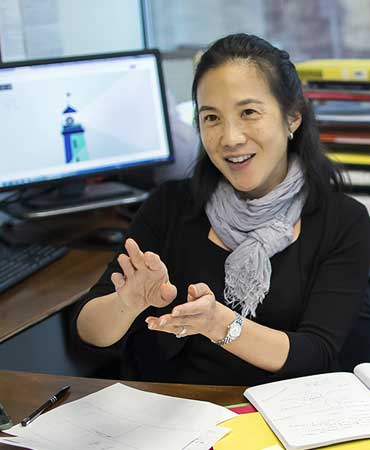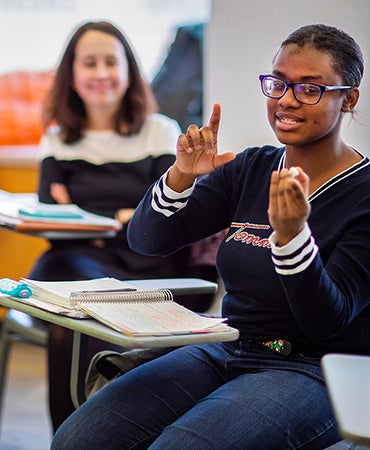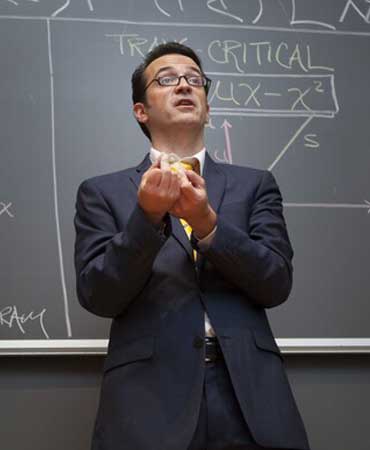Close
Upcoming Workshops & Discussions
21Aug
Faculty Event, Graduate Student Workshop, Open to All
Introduction to Wooclap
22Aug
Faculty Event
Setting Students up for Success in Group Work
15Sep
Open to All
AI Principles & Practices Series: AI Essentials
16Sep
Faculty Event
Engaging with Your Students Around Purposeful AI Use
17Sep
Faculty Event
Setting Expectations for College
13Aug
Open to All
AI Principles & Practices Series: AI Essentials
18Aug
Faculty Event
Classroom and Learning Spaces Tour
18Aug
Faculty Event, Graduate Student Workshop, Open to All
Introduction to Wooclap
18Aug
Faculty Event
Demystifying Grading
19Aug
Faculty Event
Tools for Promoting Attendance and Participation
21Aug
Faculty Event, Graduate Student Workshop, Open to All
Introduction to Wooclap
22Aug
Faculty Event
Setting Students up for Success in Group Work
15Sep
Open to All
AI Principles & Practices Series: AI Essentials
16Sep
Faculty Event
Engaging with Your Students Around Purposeful AI Use
17Sep
Faculty Event
Setting Expectations for College
13Aug
Open to All
AI Principles & Practices Series: AI Essentials
18Aug
Faculty Event
Classroom and Learning Spaces Tour
18Aug
Faculty Event, Graduate Student Workshop, Open to All
Introduction to Wooclap
18Aug
Faculty Event
Demystifying Grading
19Aug
Faculty Event
Tools for Promoting Attendance and Participation
22Aug
Faculty Event
Setting Students up for Success in Group Work
16Sep
Faculty Event
Engaging with Your Students Around Purposeful AI Use
17Sep
Faculty Event
Setting Expectations for College
19Sep
26Sep
Faculty Event
Getting Students to Speak in Class
18Aug
Faculty Event
Classroom and Learning Spaces Tour
18Aug
Faculty Event, Graduate Student Workshop, Open to All
Introduction to Wooclap
18Aug
Faculty Event
Demystifying Grading
19Aug
Faculty Event
Tools for Promoting Attendance and Participation
21Aug
Faculty Event, Graduate Student Workshop, Open to All
Introduction to Wooclap
22Aug
Faculty Event
Setting Students up for Success in Group Work
16Sep
Faculty Event
Engaging with Your Students Around Purposeful AI Use
17Sep
Faculty Event
Setting Expectations for College
19Sep
26Sep
Faculty Event
Getting Students to Speak in Class
18Aug
Faculty Event
Classroom and Learning Spaces Tour
18Aug
Faculty Event, Graduate Student Workshop, Open to All
Introduction to Wooclap
18Aug
Faculty Event
Demystifying Grading
19Aug
Faculty Event
Tools for Promoting Attendance and Participation
21Aug
Faculty Event, Graduate Student Workshop, Open to All
Introduction to Wooclap
21Aug
Faculty Event, Graduate Student Workshop, Open to All
Introduction to Wooclap
06Oct
Faculty Event, Graduate Student Workshop, Open to All
Accessible Pedagogy: PDFs
03Nov
Faculty Event, Graduate Student Workshop, Open to All
Accessible Pedagogy: PowerPoints
18Aug
Faculty Event, Graduate Student Workshop, Open to All
Introduction to Wooclap
21Aug
Faculty Event, Graduate Student Workshop, Open to All
Introduction to Wooclap
06Oct
Faculty Event, Graduate Student Workshop, Open to All
Accessible Pedagogy: PDFs
03Nov
Faculty Event, Graduate Student Workshop, Open to All
Accessible Pedagogy: PowerPoints
18Aug
Faculty Event, Graduate Student Workshop, Open to All
Introduction to Wooclap
21Aug
Faculty Event, Graduate Student Workshop, Open to All
Introduction to Wooclap
06Oct
Faculty Event, Graduate Student Workshop, Open to All
Accessible Pedagogy: PDFs
21Aug
Faculty Event, Graduate Student Workshop, Open to All
Introduction to Wooclap
06Oct
Faculty Event, Graduate Student Workshop, Open to All
Accessible Pedagogy: PDFs
03Nov
Faculty Event, Graduate Student Workshop, Open to All
Accessible Pedagogy: PowerPoints
18Aug
Faculty Event, Graduate Student Workshop, Open to All
Introduction to Wooclap
21Aug
Faculty Event, Graduate Student Workshop, Open to All
Introduction to Wooclap
06Oct
Faculty Event, Graduate Student Workshop, Open to All
Accessible Pedagogy: PDFs
03Nov
Faculty Event, Graduate Student Workshop, Open to All
Accessible Pedagogy: PowerPoints
18Aug
Faculty Event, Graduate Student Workshop, Open to All
Introduction to Wooclap
21Aug
Faculty Event, Graduate Student Workshop, Open to All
Introduction to Wooclap
06Oct
Faculty Event, Graduate Student Workshop, Open to All
Accessible Pedagogy: PDFs
blank - LEAVE THIS HERE
Helping All Instructors Excel
Frequently Accessed Info
Teaching and Innovation Today
CETLI offers guidance and resources to help you and your students excel.





